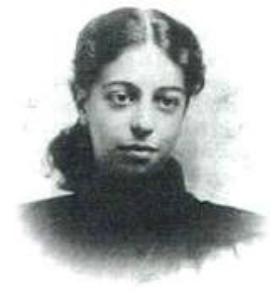Mary Booze
Mary Cordelia Montgomery Booze | |
|---|---|
 | |
| Born | March 1878[1] |
| Died | May 17, 1955 (aged 77)[2] Hampton, Virginia, U.S.[2] |
| Alma mater | Straight University |
| Occupation | Businesswoman Instructor, Mound Bayou Normal Institute |
| Known for | First African-American woman to sit on the Republican National Committee |
| Political party | Republican |
| Spouse | Eugene P. Booze (married 1901–1939, his death) |
| Children | Two children |
| Parent(s) | Mr. and Mrs. Isaiah T. Montgomery |
Mary Cordelia Montgomery Booze (1878–1955), a daughter of former slaves, was the first African-American woman to sit on the Republican National Committee. From 1924 until her death, she was the national committeewoman for her native state of Mississippi.
Biography
Born Mary Montgomery in March 1878 to parents who had been enslaved when young, she grew up in the Mississippi Delta.
Despite state restrictions that effectively disenfranchised most blacks, Booze joined the Republican Party. Beginning in 1924, she served as a committeewoman from Mississippi to the Republican National Committee, the first African-American woman to hold that position.
She became a subject of innuendo in fierce state politics during the 1928 presidential campaign that year.[3]
Hoover appointed Akerson in 1929 as the first official White House press secretary.[4][5] Others opposed him because he was Roman Catholic.[6][7][8]
References
- ^ "Twelfth Census of the United States", United States census, 1900; Bolivar County, Mississippi; page 1A, line 22, enumeration district 9. Retrieved on 17 May 2020.
- ^ a b c "Certificate of Death/Commonwealth of Virginia". Ancestry.com. Generations Network. 23 May 1955. Retrieved 9 May 2020.
- ^ "Theodore G. Bilbo of Mississippi". San Jose, California: San Jose State University. Retrieved July 28, 2015.
- ^ The Shreveport Times, October 20, 1928, p. 1
- ^ The Shreveport Times, October 28, 1928, p. 8
- ^ Stephen D. Zink, "Cultural Conflict and the 1928 Presidential Campaign in Louisiana", Southern Studies (Summer 1978), p. 180.
- ^ Time, November 20, 1939
- ^ Heersink, Boris; Jenkins, Jeffery A. (2020). "Whiteness and the Emergence of the Republican Party in the Early Twentieth-Century South". Studies in American Political Development. 34 (1): 71–90. doi:10.1017/S0898588X19000208. ISSN 0898-588X. S2CID 213551748.
- Articles with short description
- Short description with empty Wikidata description
- Articles without Wikidata item
- Pages using infobox person with multiple parents
- Articles with hCards
- AC with 0 elements
- 1878 births
- 1955 deaths
- Straight University alumni
- African-American people in Mississippi politics
- Women in Mississippi politics
- Mississippi Republicans
- Activists for African-American civil rights
- People from Mound Bayou, Mississippi
- Activists from New York City
- Republican National Committee members
- African-American women in politics
- 20th-century African-American activists
- 20th-century African-American women